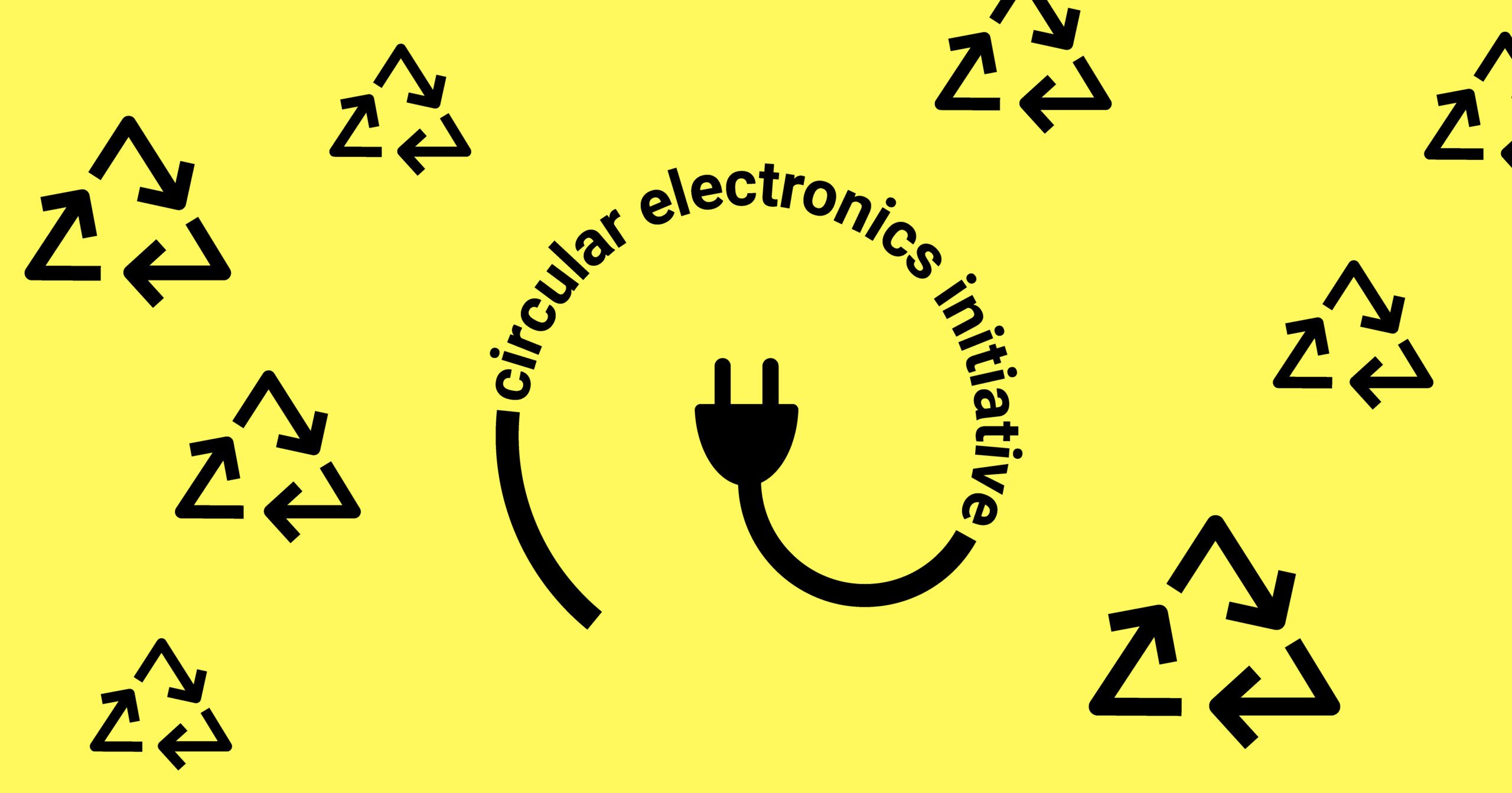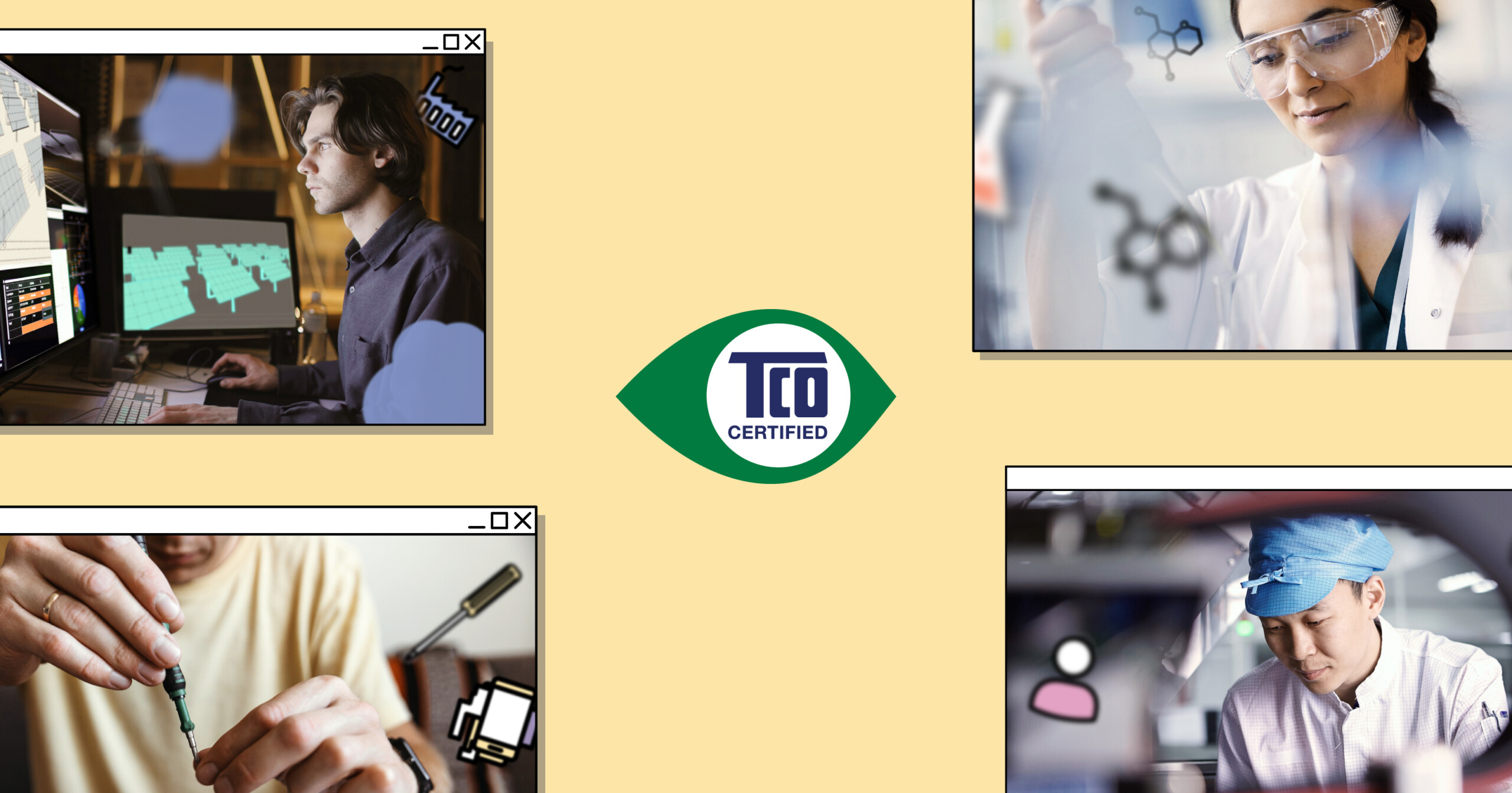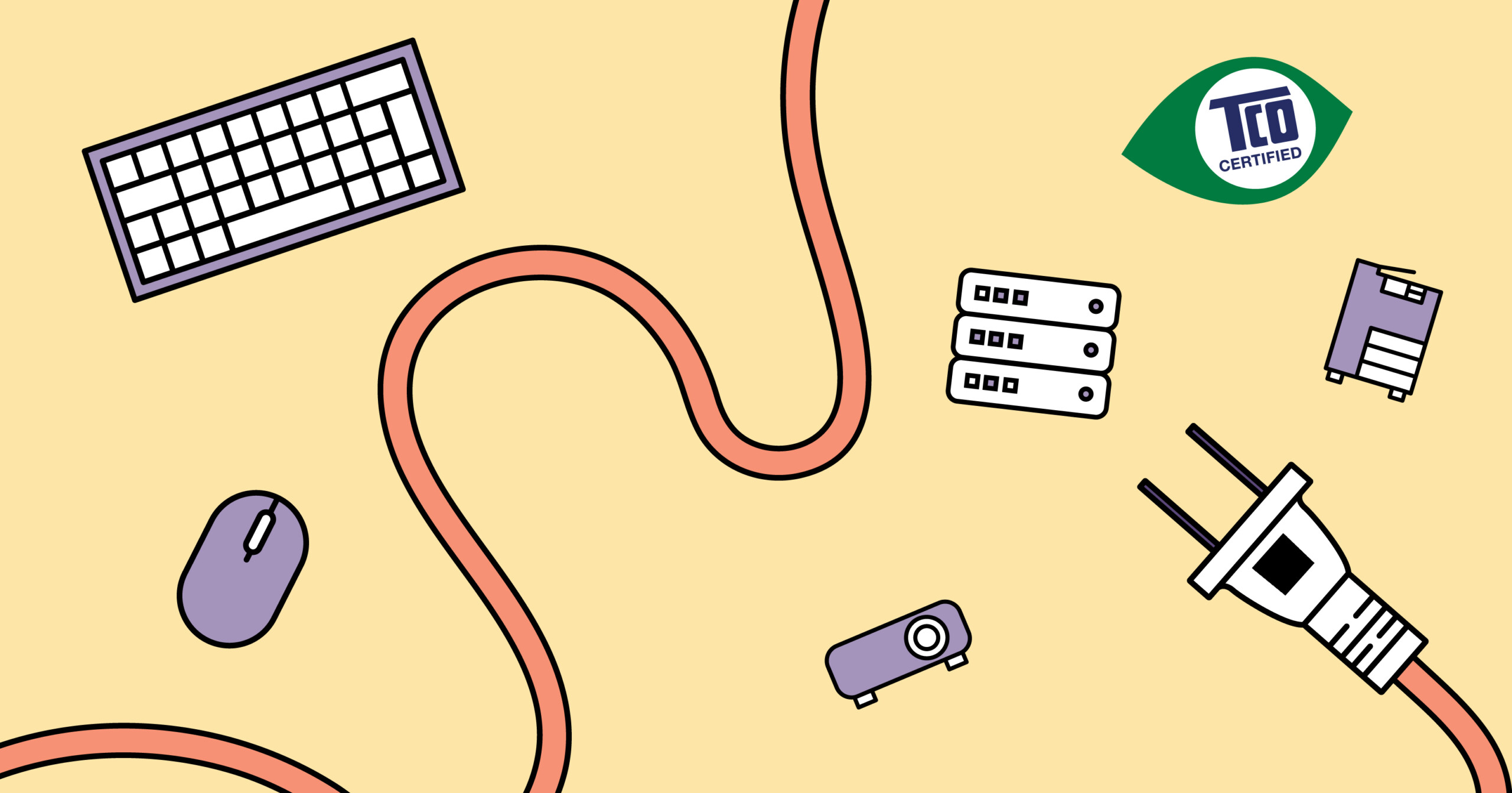The circular economy is an important building block in the EU’s European Green Deal. However, progress is slow and in recent years, progress has even gone backwards as the circular material use rate has decreased. The linear use of IT products leads to large amounts of waste. Switching to a more circular use of IT products is an accessible and more sustainable solution.
Replacing the linear economy with a circular one means developing business models that focus on the reuse and recycling of products and materials. A circular economy is key to safeguarding sustainable economic growth, whilst at the same time battling the loss of biodiversity, as well as climate change. Our use of IT products leads to large amounts of waste, and implementing more circular practices can lead to great sustainability benefits.
The EU average for circular material use (material resources stemming from recycled waste materials, including all different sectors/industries and materials) is currently less than 12 percent, according to Eurostat (by 2021). The Netherlands has the highest rate, at 34 percent. For electrical and electronic equipment, the average collection rate for waste in the EU is circa 40 percent, falling short on the EU goal of 65 percent (from 2019 onwards). Every country has different prerequisites, but lots of more work is needed regardless.
– The manufacturing phase of a notebook in most cases accounts for more than 80 percent of lifecycle climate emissions. So, whether you buy or rent IT products, the most important thing you can do to reduce emissions is to use the products for a few more years, says Iegor Trieshchov, Project Manager Circular IT solutions at Aliter Networks.
– Many organizations seem to collect used computers in a storage room. By instead selling the products to a refurbishment or remanufacturing firm, you can enable circular practices and reduce greenhouse gas emissions. As a last resort, the products should of course be recycled, says Andreas Nobell, Development Manager at TCO Development, the organization behind the sustainability certification TCO Certified.
The Circular Electronics Initiative, a network of 28 organizations, aims to encourage organizations and consumers to take a more responsible approach to the electronic goods they buy and use. Here are three strategies for using IT products more sustainably:
- Choose products that are made for a long life
If you need a new product, choose durable, repairable and upgradeable products with enough capacity to cover your needs for a long time. An easy way to do this is to look for products that carry a credible sustainability certification. - Use the products for a few more years
A notebook generates about 300 kg of greenhouse gas emissions during its lifetime, of which the manufacturing phase in most cases accounts for more than 80 percent of lifecycle climate emissions. To reduce emissions, the most important thing you can do is to use products longer, for example, go from three to at least four or five years per product by default. From this perspective, a refurbished or remanufactured product is a good choice. - Resell your used IT-products for reconditioning and reuse
Become a part of the circular economy by selling your IT-products to a refurbishment or remanufacturing firm. Once reconditioning options have been considered and the product has reached the end of its usable life, it should be handed over to a recycling facility where it is handled responsibly.
If you want more information, or if you are a journalist looking to get in touch with experts on circularity and IT products, please contact the Circular Electronics Initiative through Adam Bergsveen, project coordinator.
E-mail: adam.bergsveen@circularelectronicsinitiative.com
Phone: +46 70 452 38 97
About Circular Electronics Initiative
The Circular Electronics Initiative is a network of 28 companies and organizations, in different European countries, that collaborate with the aim of promoting a more sustainable use of IT products among companies and the general public. The members are: GIAB, 3stepIT, Advania, Aliter Networks, ATEA, Blocket, Chalmers Industriteknik, Circular Computing, Cistor, Closing the Loop, Dell, ETIRA, European Remanufacturing Council, Inrego, International Institute for Industrial Environmental Economics, IVL Swedish Environmental Research Institute, Lenovo, Recipo, Smithereens, TCO Development, Dustin, Tradera, Towards Zero Waste, Prime Computer, Innovent Leasing, Weee Centre in Kenya, Compare & Recycle, INDEED Innovation GmbH.



